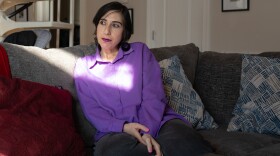To call the Gatton Academy of Mathematics and Science a high school, you'd have to suspend an element of reality. You’ll find no football games, pep rallies, or dismissal bells on the Kentucky campus. Instead you’d find couches designed for study halls and white boards scribbled with advanced math. Last week, one student even walked around campus in a t-shirt proclaiming, "Extreme science: What a rush."
Kentucky's Gatton Academy Named Nation's Top Public High School, But Can It Be Replicated?
Newsweek Magazine has again compiled a list of the best high schools in the country, and a Kentucky school is on top.




